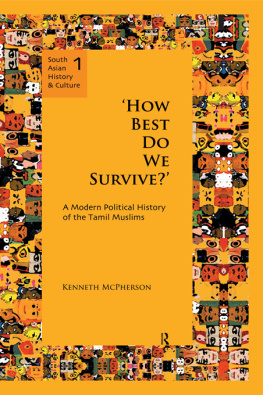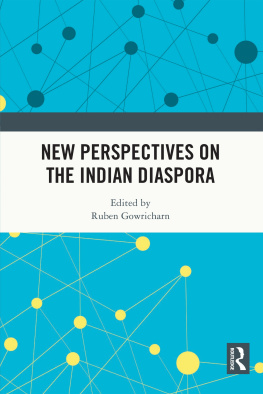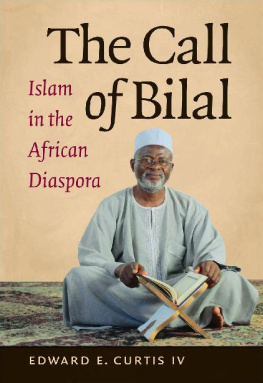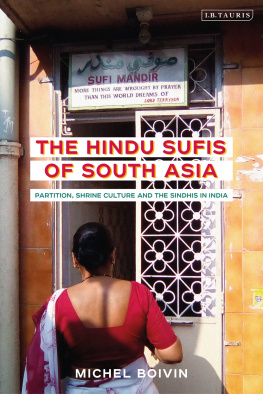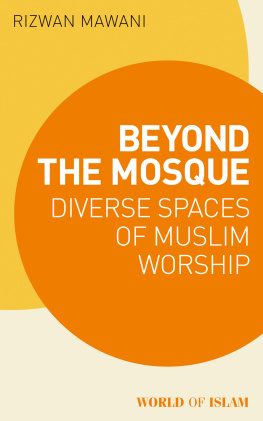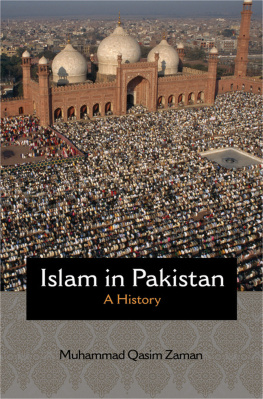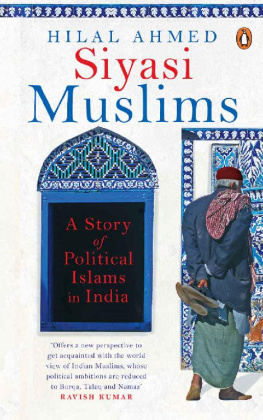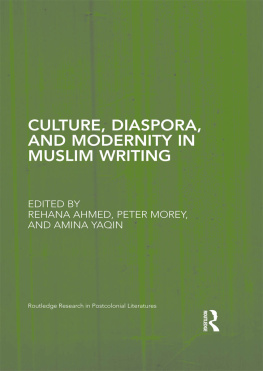
Ahmadiyya Islam and the Muslim Diaspora
This book is a study of the UK-based Ahmadiyya Muslim community in the context of the twentieth-century South Asian diaspora. Originating in late nineteenth-century Punjab, the Ahmadis are today a vibrant international religious movement; they are also a group that has been declared heretic by other Muslims and one that continues to face persecution in Pakistan, the country the Ahmadis made their home after the partition of India in 1947.
Structured as a series of case studies, the book focuses on the ways in which the Ahmadis balance the demands of faith, community and modern life in the diaspora. Following an overview of the history and beliefs of the Ahmadis, the chapters examine in turn the use of ceremonial occasions to consolidate a diverse international community; the paradoxical survival of the enchantments of dreams and charisma within the structures of an institutional bureaucracy; asylum claims and the ways in which the plight of asylum seekers has been strategically deployed to position the Ahmadis on the UK political stage; and how the planning and building of mosques serves to establish a home within the diaspora.
Based on fieldwork conducted over several years in a range of formal and informal contexts, this timely book will be of interest to an interdisciplinary audience from social and cultural anthropology, South Asian studies, the study of Islam and of Muslims in Europe, refugee, asylum and diaspora studies, as well as more generally religious studies and history.
Marzia Balzani is Research Professor of Anthropology at New York University Abu Dhabi, United Arab Emirates.
Routledge/Asian Studies Association of Australia (ASAA) South Asian Series
Edited by Duncan McDuie-Ra
The University of New South Wales, Australia
Published in Association with the Australian Studies Association of Australia (ASAA), represented by Ernest Koh, chair of the ASAA Publications Committee, Monash University, Australia.
Founded in 1986 to publish outstanding work in the social sciences and humanities, the SAPS entered a new phase in 2010 when it joined with Routledge to continue a notable tradition of Australian-based research about South Asia. Works in the series are published in both UK and Indian editions.
SAPS publishes outstanding research on the countries and peoples of South Asia across a wide range of disciplines including history, politics and political economy, anthropology, geography, literature, sociology and the fields of cultural studies, communication studies and gender studies. Interdisciplinary and comparative research is encouraged.
Suicide and Society in India
Peter Mayer
Women and Domestic Violence in Bangladesh
Seeking A Way Out of the Cage
Laila Ashrafun
Transitional Justice in Nepal
Interests, Victims and Agency
Yvette Selim
India and the Anglosphere
Race, Identity and Hierarchy in International Relations
Alexander E. Davis
Sovereignty, Space and Civil War in Sri Lanka
Porous Nation
Anoma Pieris
Ahmadiyya Islam and the Muslim Diaspora
Living at the End of Days
Marzia Balzani
For more information about this series, please visit: www.routledge.com/asianstudies/series/ASAASAS
Ahmadiyya Islam and the Muslim Diaspora
Living at the End of Days
Marzia Balzani
First published 2020
by Routledge
2 Park Square, Milton Park, Abingdon, Oxon OX14 4RN
and by Routledge
52 Vanderbilt Avenue, New York, NY 10017
Routledge is an imprint of the Taylor & Francis Group, an informa business
2020 Marzia Balzani
The right of Marzia Balzani to be identified as author of this work has been asserted by her in accordance with sections 77 and 78 of the Copyright, Designs and Patents Act 1988.
All rights reserved. No part of this book may be reprinted or reproduced or utilised in any form or by any electronic, mechanical, or other means, now known or hereafter invented, including photocopying and recording, or in any information storage or retrieval system, without permission in writing from the publishers.
Trademark notice: Product or corporate names may be trademarks or registered trademarks, and are used only for identification and explanation without intent to infringe.
British Library Cataloguing-in-Publication Data
A catalogue record for this book is available from the British Library
Library of Congress Cataloging-in-Publication Data
A catalog record for this book has been requested
ISBN: 978-1-138-71585-1 (hbk)
ISBN: 978-1-315-19728-9 (ebk)
Typeset in Times New Roman
by Apex CoVantage, LLC
For Nick Allen
No ethnography could come to fruition without the support, knowledge and patience of many individuals. This one is no different, and I only hope that this book does justice to the many people over many years who have opened their homes to me, shared their time and their insights, invited me to events and answered my questions with understanding and good grace. Without the members of the Ahmadiyya jamaat UK and their willingness to allow me to attend functions both large and small, join in with family celebrations and take part in committee meetings as well as be granted the opportunity to learn about some of the backstage organization necessary to manage the incredible amount of work required to maintain the jamaat, this ethnography would not have been possible.
I first found out about the Ahmadiyya Muslims living, working and worshipping in my neighbourhood in London in 2003 and soon thereafter began to take my first tentative steps towards a full-fledged ethnographic study. For much of the time since then I have worked towards this book as and when other commitments made it possible to do so. While it was often frustrating not to be able to devote a long stretch of time solely to the ethnography the slow build-up of knowledge and the opportunities this has afforded me to watch the jamaat grow, change and respond to events local and global has, I hope, deepened and enriched my understanding of Ahmadiyya Islam in the diaspora. It has also allowed me to watch some of the children and young people I first met years ago grow into thoughtful and considerate adults, and in some cases even to see them start families of their own. Over time friendships have developed, and I now cannot imagine a return trip to the UK without visiting people who started off as my informed consent-giving interlocutors and who have now come to mean much more to me than this official sounding twenty-first-century research term would suggest. Among the very many people I wish to thank are Anni Rehman, Fauzia Mirza, Maha Khan, Maryam Karim, Qudsia Mirza, Aneela, Sara, Naheed and the very many other women who did not wish to have their names appear in print. I also wish to thank Asif M. Basit, Curator, Ahmadiyya Archive and Research Centre, London for our conversations over the years and the permission to reproduce the photographs in the book. To Usman Ahmad, who shared his memories and formidable store of knowledge about the history, official and personal, of the


